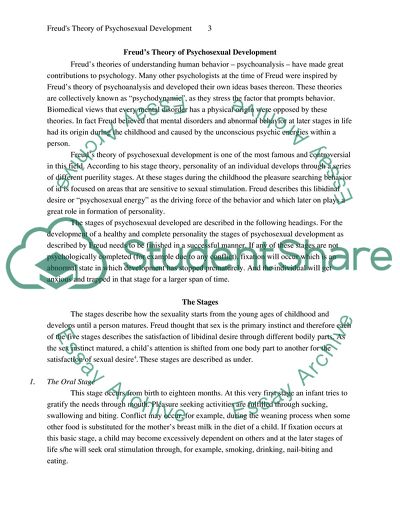Cite this document
(Freud's Theory of Psychosexual Development Coursework Example | Topics and Well Written Essays - 2250 words, n.d.)
Freud's Theory of Psychosexual Development Coursework Example | Topics and Well Written Essays - 2250 words. https://studentshare.org/psychology/1776551-evaluate-the-extent-to-which-freuss-theory-of-psychosexual-development-can-help-understand-a-clients-presenting-issue
Freud's Theory of Psychosexual Development Coursework Example | Topics and Well Written Essays - 2250 words. https://studentshare.org/psychology/1776551-evaluate-the-extent-to-which-freuss-theory-of-psychosexual-development-can-help-understand-a-clients-presenting-issue
(Freud'S Theory of Psychosexual Development Coursework Example | Topics and Well Written Essays - 2250 Words)
Freud'S Theory of Psychosexual Development Coursework Example | Topics and Well Written Essays - 2250 Words. https://studentshare.org/psychology/1776551-evaluate-the-extent-to-which-freuss-theory-of-psychosexual-development-can-help-understand-a-clients-presenting-issue.
Freud'S Theory of Psychosexual Development Coursework Example | Topics and Well Written Essays - 2250 Words. https://studentshare.org/psychology/1776551-evaluate-the-extent-to-which-freuss-theory-of-psychosexual-development-can-help-understand-a-clients-presenting-issue.
“Freud'S Theory of Psychosexual Development Coursework Example | Topics and Well Written Essays - 2250 Words”. https://studentshare.org/psychology/1776551-evaluate-the-extent-to-which-freuss-theory-of-psychosexual-development-can-help-understand-a-clients-presenting-issue.


